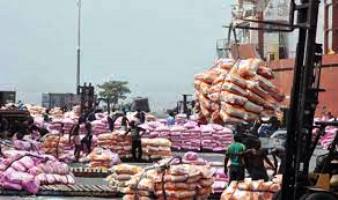The President of the Lagos Chamber of Commerce and Industry (LCCI), Mr. Gabriel Idahosa, has highlighted Nigeria’s acute food security crisis, revealing that the nation spent $2.13 billion on food imports in 2023.
This expenditure underscores the persistent structural weaknesses that have impeded progress in Nigeria’s agriculture sector.
Speaking at the LCCI’s “Agriculture and Allied Group 2024 Symposium/Agric-Fair,” themed “Nigeria Food Production in Global Space: Leveraging Our Competitive Advantage,” Idahosa pointed out that the heavy reliance on food imports is compounded by inadequate infrastructure, ongoing insecurity, and the impacts of climate change.
Idahosa emphasized that Nigeria is at a critical juncture, facing immense challenges due to its overdependence on oil revenue and food imports, rapid population growth, and urbanization.
He noted that the country’s food security situation is dire, with food inflation reaching 40.87% as of June 2024 and the number of food-insecure Nigerians rising from 66.2 million in Q1 2023 to 100 million in Q1 2024, including 18.6 million facing acute hunger.
“These figures reflect more than just statistics; they represent the lives of millions grappling with hunger, malnutrition, and poverty,” Idahosa said.
“Our current food production capacity is insufficient to meet the needs of over 230 million Nigerians.”
He urged the government to adopt a robust fiscal policy and implement targeted food production programs. Investments in agricultural research, improved seedlings, disease prevention, and modern agricultural technology are critical, he added.
Idahosa called for a comprehensive, multi-faceted strategy, including the Medium-Term National Development Plan (2021-2025), which advocates for a holistic food systems approach addressing land, soil, seed, and water security.
He also recommended expanding the National Food Security Council to involve key stakeholders at federal and state levels to ensure effective coordination and delivery of agricultural resources.


